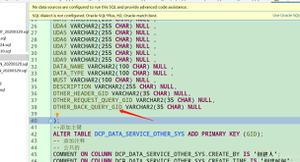Python - 检查特定索引中的元素是否与列表元素相等
当需要检查特定索引中的元素是否等于另一个元素列表时,使用简单迭代和布尔值。
示例
以下是相同的演示 -
my_list_1 = [69, 96, 23, 57, 13, 75, 13]输出结果my_list_2 = [68, 21, 69, 23, 49, 35, 73]
print("第一个列表是: " )
print(my_list_1)
print("排序后的第一个列表是:")
my_list_1.sort()
print(my_list_1)
print("第二个名单是: " )
print(my_list_2)
print("排序后的第一个列表是:")
my_list_2.sort()
print(my_list_2)
check_list = [66, 89, 69]
print("第二个名单是: " )
print(check_list)
print("排序后的检查清单是:")
check_list.sort()
print(check_list)
my_result = True
for index, element in enumerate(my_list_1):
if my_list_1[index] != my_list_2[index] and element in check_list:
my_result = False
break
if(my_result == True):
print("The elements of the list are equal to the elements in the check list")
else:
print("The elements of the list aren't equal to elements in the check list")
第一个列表是:[69, 96, 23, 57, 13, 75, 13]
排序后的第一个列表是:
[13, 13, 23, 57, 69, 75, 96]
第二个名单是:
[68, 21, 69, 23, 49, 35, 73]
排序后的第一个列表是:
[21, 23, 35, 49, 68, 69, 73]
第二个名单是:
[66, 89, 69]
排序后的检查清单是:
[66, 69, 89]
The elements of the list aren't equal to elements in the check list
解释
定义了两个整数列表并显示在控制台上。
它们被排序并显示在控制台上。
布尔值分配给 True。
使用“枚举”迭代第一个列表。
比较特定索引处的元素,并检查该元素是否在第三个列表中找到。
如果未找到,则将布尔值分配给“False”。
控制跳出循环。
根据布尔值,消息显示在控制台上。
以上是 Python - 检查特定索引中的元素是否与列表元素相等 的全部内容, 来源链接: utcz.com/z/341347.html



